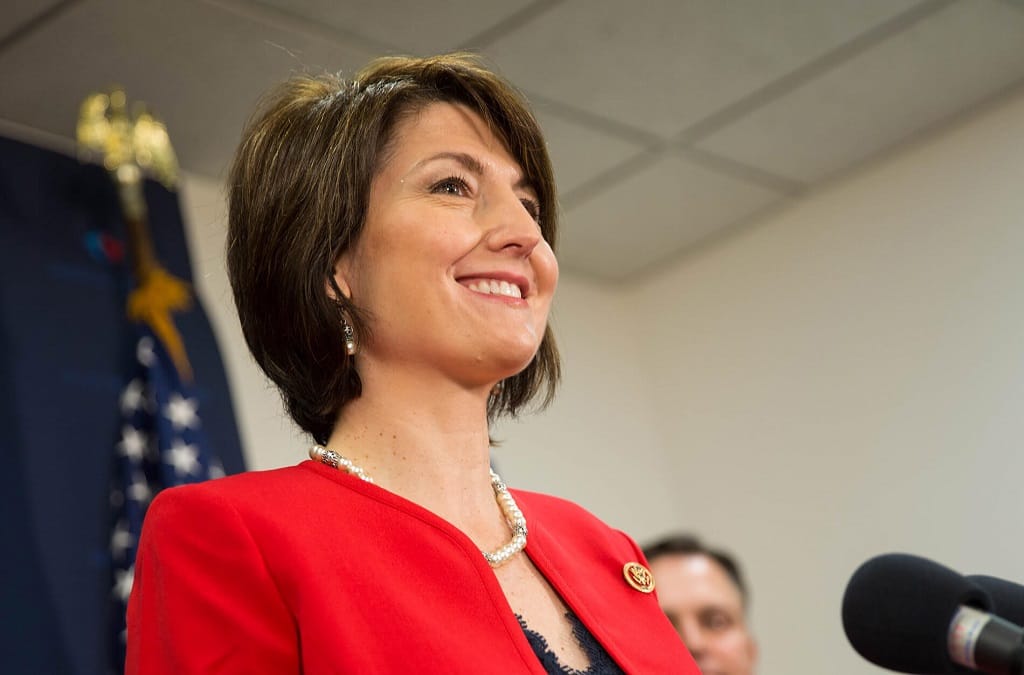Lapse in FCC Spectrum Auction Authority, Biden Budget on Broadband, $66M for Affordability Outreach
Lawmakers were disappointed the Senate did not pass legislation providing the authority until May 19.
Ahmad Hathout

March 13, 2023 – Disappointing sentiments poured in after Congress for the first time failed to extend the Federal Communications Commission’s spectrum auction authority on Thursday.
A bill, H.R. 1108, passed by the House last month that would extend the authority to May 19 stalled in the Senate over objections to the length of the extension to allow for the completion of a Department of Defense and National Telecommunications and Information Administration study on repurposing government spectrum for commercial use.
“We are disappointed that the Senate has not acted to do the same, because of the objections of one senator, and that the FCC’s authority to issue spectrum licenses will expire for the first time ever as a result,” said a joint statement from House Commerce Committee Chair Cathy McMorris Rodgers, R-Washington, ranking member Frank Pallone Jr., and D-N.J., Bob Latta, R-Ohio, and Doris Matsui, D-Calif.
“We will continue to work with our colleagues in the House and Senate to get our nation back on track to establish a strong, sustainable spectrum policy that benefits consumers and advances U.S. interests globally,” the statement added.
FCC Chairwoman Jessica Rosenworcel said in a statement on Friday that, “For three decades, the Federal Communications Commission’s authority to auction the nation’s airwaves has been an indispensable tool for harnessing the promise of new wireless technologies while also spurring economic growth, creating jobs, and strengthening our national security and global leadership.
“It is my hope that the FCC’s auction authority is restored quickly so that this important program is once again able to produce results for consumers and the economy,” she added.
Within the last six months, the FCC’s authority to auction the airwaves has been extended twice: first from September to December and then from December to March 9 through the larger congressional spending package. A bill introduced last year would have extended the authority to March 31, 2024.
The lapse comes just days after the FCC’s fifth commissioner nominee withdrew from contention over complaints Republican lawmakers tarnished her career.
Biden budget proposes $400M for USDA’s Reconnect program
President Joe Biden’s proposed budget for fiscal 2024, released Thursday, would allocate $400 million to the Department of Agriculture’s ReConnect broadband loan and grant program.
“Installing high-speed internet creates high-paying union jobs and strengthens rural economies, which leads to higher property values, increased job and population growth, lower unemployment rates, and new business formation,” the budget document said.
The amount would build on the department’s more than $2 billion fund for broadband. Last year’s budget proposal, which must get through Congress, included $600 million for the fund.
If approved, the money would add to the billions going toward broadband from other programs to connect underserved and unserved areas of the country. That includes the $42.5 billion in the NTIA’s Broadband Equity, Access and Deployment program, slated for allocation to the states by June 30, and money from the American Rescue Plan Act.
Biden’s budget proposal also includes more than $2.3 billion to the State Department and the U.S. Agency for International Development to “support an open, secure, and connected Indo-Pacific and implement the Indo-Pacific Strategy to strengthen and modernize America’s alliances” to effectively “out-compete China.”
The budget also puts $400 million for the Countering PRC Influence Fund, to “assert U.S. leadership in strategic competition” with the People’s Republic of China.
FCC announces $66M for Affordable Connectivity Program outreach
The FCC announced Friday that $66 million will go toward applicants in two of the four outreach programs intended to spread the word about the Affordable Connectivity Program, which subsidizes connectivity for low-income Americans and those living on tribal lands.
The money will go toward applicants of the National Competitive Outreach Program and the Tribal Competition Outreach Program. The full $60 million allocated to the former is being allocated while $6 million of the $10 million allocated to the latter has been targeted. The programs were announced by the commission in November.
The commission selected 197 applicants representing 50 states and territories from 350 applications. The intent is to partner with “trusted messengers” about the program and “equipping them with funding to pursue innovative outreach strategies to reach historically underserved and unserved communities,” the FCC said in a statement Friday.
“Our partner organizations will now be able to use grant funds to conduct digital campaigns, door-to-door canvassing, operate phone banks, distribute direct mail, host ACP application enrollment and outreach events,” the FCC added.
The commission added that is planning to release “enhancements” to the online consumer application intended to make enrollment easier “in the next few weeks.”
The $14 billion program, which provides broadband subsidies of $30 per month and $75 per month for households on tribal lands, has had issues getting qualified people to subscribe. Currently about 16 million are on the program, according to the White House.
Calling the 16-million-person target “progress,” Rosenworcel added, “but we want to do more to get out the word about this powerful program and reach families that may not know about this benefit. These outreach grants will help us expand awareness in more communities, so we can continue the work to close the digital divide.”









Member discussion